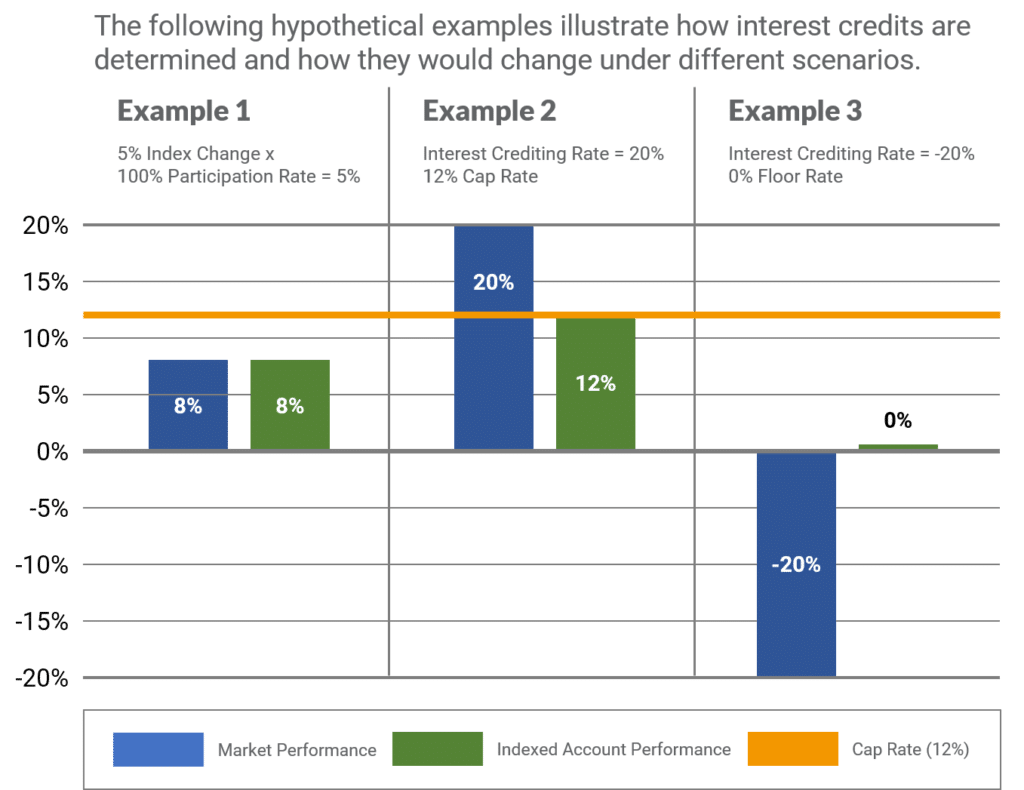All Categories
Featured
Table of Contents
1), often in an attempt to beat their category standards. This is a straw guy debate, and one IUL folks enjoy to make. Do they compare the IUL to something like the Lead Overall Stock Exchange Fund Admiral Show to no lots, an expenditure ratio (ER) of 5 basis points, a turnover ratio of 4.3%, and a remarkable tax-efficient document of distributions? No, they contrast it to some terrible proactively managed fund with an 8% load, a 2% ER, an 80% turn over proportion, and an awful record of temporary resources gain circulations.
Common funds typically make annual taxed distributions to fund proprietors, also when the value of their fund has gone down in value. Mutual funds not just need income coverage (and the resulting yearly taxes) when the mutual fund is rising in value, yet can also impose earnings taxes in a year when the fund has dropped in value.
You can tax-manage the fund, collecting losses and gains in order to reduce taxable circulations to the capitalists, but that isn't in some way going to transform the reported return of the fund. The possession of common funds may require the mutual fund proprietor to pay approximated taxes (accumulation value of life insurance).

IULs are very easy to place to make sure that, at the proprietor's death, the beneficiary is exempt to either earnings or inheritance tax. The same tax decrease strategies do not function nearly also with shared funds. There are various, commonly pricey, tax catches connected with the timed trading of mutual fund shares, traps that do not put on indexed life insurance policy.
Possibilities aren't very high that you're going to go through the AMT due to your mutual fund distributions if you aren't without them. The remainder of this one is half-truths at best. While it is true that there is no income tax due to your heirs when they inherit the earnings of your IUL plan, it is additionally real that there is no revenue tax obligation due to your successors when they inherit a common fund in a taxable account from you.
National Life Group Indexed Universal Life
The government estate tax exception limitation is over $10 Million for a couple, and expanding every year with inflation. It's a non-issue for the large majority of medical professionals, much less the rest of America. There are better means to prevent estate tax obligation problems than acquiring financial investments with low returns. Common funds might create revenue taxation of Social Safety advantages.

The development within the IUL is tax-deferred and might be taken as free of tax revenue through fundings. The policy proprietor (vs. the mutual fund supervisor) is in control of his/her reportable income, thus enabling them to minimize or perhaps eliminate the tax of their Social Protection advantages. This one is great.
Here's another minimal concern. It holds true if you get a mutual fund for state $10 per share right before the circulation day, and it disperses a $0.50 circulation, you are after that mosting likely to owe taxes (possibly 7-10 cents per share) despite the truth that you haven't yet had any type of gains.
However in the long run, it's truly concerning the after-tax return, not just how much you pay in tax obligations. You are mosting likely to pay more in taxes by using a taxed account than if you purchase life insurance. But you're additionally probably going to have even more money after paying those tax obligations. The record-keeping needs for possessing common funds are significantly much more complicated.
With an IUL, one's records are maintained by the insurer, duplicates of yearly declarations are mailed to the proprietor, and distributions (if any type of) are totaled and reported at year end. This is likewise kind of silly. Obviously you need to keep your tax obligation records in instance of an audit.
Ul Mutual Insurance Company
All you need to do is push the paper right into your tax obligation folder when it shows up in the mail. Hardly a reason to acquire life insurance. It's like this person has actually never purchased a taxed account or something. Common funds are generally part of a decedent's probated estate.
On top of that, they go through the delays and costs of probate. The earnings of the IUL plan, on the other hand, is always a non-probate distribution that passes outside of probate directly to one's named beneficiaries, and is as a result exempt to one's posthumous lenders, undesirable public disclosure, or similar hold-ups and expenses.
We covered this set under # 7, yet simply to evaluate, if you have a taxed mutual fund account, you need to put it in a revocable count on (or perhaps less complicated, use the Transfer on Death classification) to avoid probate. Medicaid disqualification and life time earnings. An IUL can offer their proprietors with a stream of income for their entire life time, regardless of for how long they live.

This is advantageous when organizing one's events, and transforming possessions to income prior to a retirement home confinement. Mutual funds can not be transformed in a comparable fashion, and are often considered countable Medicaid possessions. This is one more silly one advocating that inadequate individuals (you recognize, the ones who require Medicaid, a government program for the poor, to spend for their assisted living facility) must utilize IUL rather of common funds.
Indexed Universal Life Insurance Quotes
And life insurance policy looks awful when contrasted rather against a retirement account. Second, individuals that have money to buy IUL above and beyond their retirement accounts are going to need to be awful at managing cash in order to ever qualify for Medicaid to spend for their nursing home expenses.
Chronic and incurable ailment rider. All plans will enable a proprietor's easy accessibility to cash money from their policy, frequently waiving any type of surrender charges when such individuals experience a serious illness, need at-home care, or end up being restricted to a nursing home. Common funds do not provide a similar waiver when contingent deferred sales costs still relate to a shared fund account whose owner needs to offer some shares to money the expenses of such a keep.
Best Equity Indexed Universal Life Insurance
You get to pay more for that benefit (biker) with an insurance coverage plan. Indexed global life insurance policy gives death advantages to the beneficiaries of the IUL proprietors, and neither the owner neither the recipient can ever before lose money due to a down market.
Currently, ask on your own, do you in fact need or desire a fatality benefit? I definitely do not require one after I reach financial freedom. Do I desire one? I mean if it were cheap sufficient. Obviously, it isn't affordable. Generally, a purchaser of life insurance coverage spends for the true price of the life insurance policy benefit, plus the costs of the policy, plus the earnings of the insurer.
Difference Between Universal Life Insurance And Whole Life Insurance
I'm not completely certain why Mr. Morais included the whole "you can't shed cash" once again below as it was covered quite well in # 1. He simply wished to duplicate the very best marketing factor for these points I suppose. Again, you do not shed small dollars, yet you can lose genuine dollars, in addition to face severe chance expense as a result of low returns.

An indexed global life insurance policy plan proprietor might exchange their policy for a totally various plan without setting off revenue taxes. A shared fund proprietor can stagnate funds from one shared fund firm to an additional without marketing his shares at the previous (therefore causing a taxed occasion), and buying new shares at the latter, usually subject to sales charges at both.
While it is real that you can trade one insurance coverage for another, the reason that people do this is that the very first one is such a terrible plan that also after acquiring a brand-new one and going via the very early, unfavorable return years, you'll still appear in advance. If they were offered the right policy the very first time, they shouldn't have any type of wish to ever before exchange it and go with the very early, unfavorable return years once again.
Latest Posts
Maximum Funded Tax Advantaged Insurance Contracts
Benefits Of Iul
Universal Life Insurance Single Premium